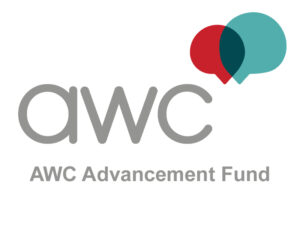If you’re ready to work for yourself, whether as a freelancer, contractor or small business owner, you have likely learned about branding and marketing, building a customer “funnel,” and considered how you will do your bookkeeping. But here some things I wish someone had told me when I started.

Define your work space. Many of us start our solo efforts by working from home. I first used a desk in the guest room, but eventually turned that room into a full home office. If you don’t have the luxury of that much space, decide where you will work, and use that area primarily for work. (Be sure to talk to your tax advisor to learn what’s required for a home office deduction on your federal income taxes.) When you are in your office space, you will be “at work.” For some of us, it’s even more important to remember that when you aren’t in that room or at that desk, you are “off.”
Need a change of scenery? Many entrepreneurs join a co-working community or work in a coffee shop as a second (or first) option. In addition to my office, I’ve designated my back deck as a good weather workspace, especially for writing. Getting a pad and pencil and sitting outside often stirs creativity differently than working on a screen. My prescription sunglasses and sun umbrella have become important summer work tools.

Set your business hours. This is especially important if you work from home. During your office hours, make it a rule that you can’t be interrupted without a really good reason. When I started out, I was alone most of the day, so it was self-interruptions I needed to ward against. Taking a lunch break and cleaning the kitchen was OK. Getting caught up in housework during my work hours wasn’t.
At my house, reducing interruptions sometimes means working with a cat in your lap or draped over your shoulder — or one in each place. This has the dual benefit of keeping you warm and them off the keyboard.

Track your time. All of it. You always need to track the time you bill to clients, but it’s helpful to track the time you spend on other things as well. When starting out, you may only be billing 10 hours a week. So where did the rest of the time go? Marketing, networking, working on your website and other materials, bookkeeping, and even noodling about as part of the creative process are all part of your work, even when you aren’t getting paid for it directly.
I have an ongoing contract that fills my schedule, so my time is about 75 percent billable and 25 percent other. Later this year, I’ll start adding in more marketing, networking and research time as that contract winds down.

Work during your most productive hours. We’re all more creative or more focused during certain times of day. If you are most creative during the morning, work then, and do things like bookkeeping, billing and research in the afternoon. For the first six months, I tried to work all day, the way you do when you have an office job and a boss who expects you to be there for a certain number of set hours. I’d force myself to sit at my computer all day, even when I wasn’t actually accomplishing anything.
Over time, I discovered my most productive hours are before noon and after 2 p.m. Now I usually take a couple of hours in the middle of the day for lunch, errands, a walk, or non-work tasks. Set a schedule and rhythm that works for you. You are the boss!

Don’t be afraid to enjoy the down time. Besides working during my productive hours,this was probably the hardest lesson. In the early years, I had seasonal ebbs when there just wasn’t as much client work and whenever this happened, I’d panic. The reality was that I had spent the time making good connections, so something was always coming.
Those lulls don’t happen as much now, but I take advantage of them when they come. I know they’ll be balanced by crazy weeks when I’m working beyond my usual hours and on weekends. That’s why I love being self-employed: I get to find my own work-life balance and make it work for me.
About the Author

Tina Riss Christiansen provides communications strategy and writing services, primarily for public education and nonprofits. She launched Write as Rain Communications, LLC, in 2005, after 14 years in corporate communications and public relations. Nearly 15 years later, she has a happy work life and can’t imagine going back to an employee role. Tina has been a member of the Seattle Professional Chapter for more than 20 years and has served in many board roles including president.




2 thoughts on “Ready to start your freelance business? Here are five things I wish I’d known.”
How do I know if its not enough to ask ?
Christina,
Are you asking about setting rates? It depends on your market and your experience level. If you know other business owners in your area, you might want to ask them about their rates to get an idea of what is expected in your area.